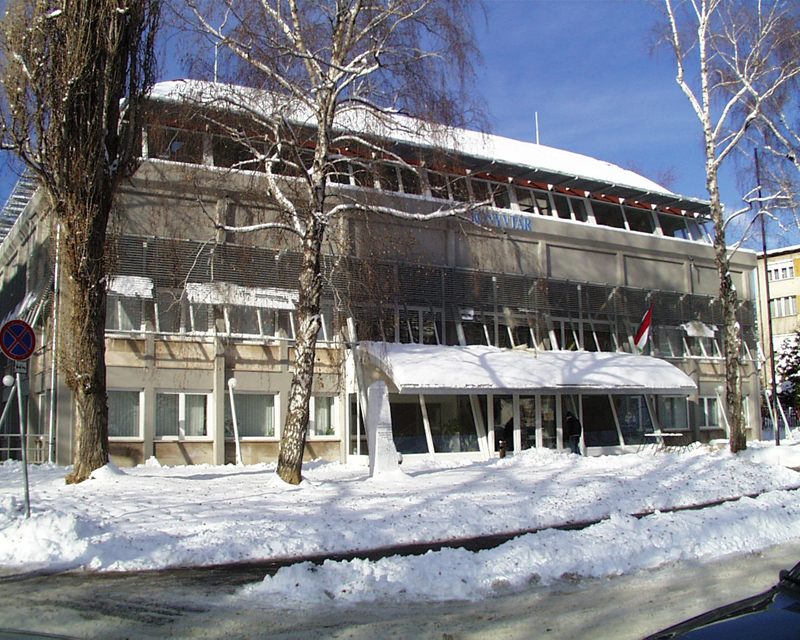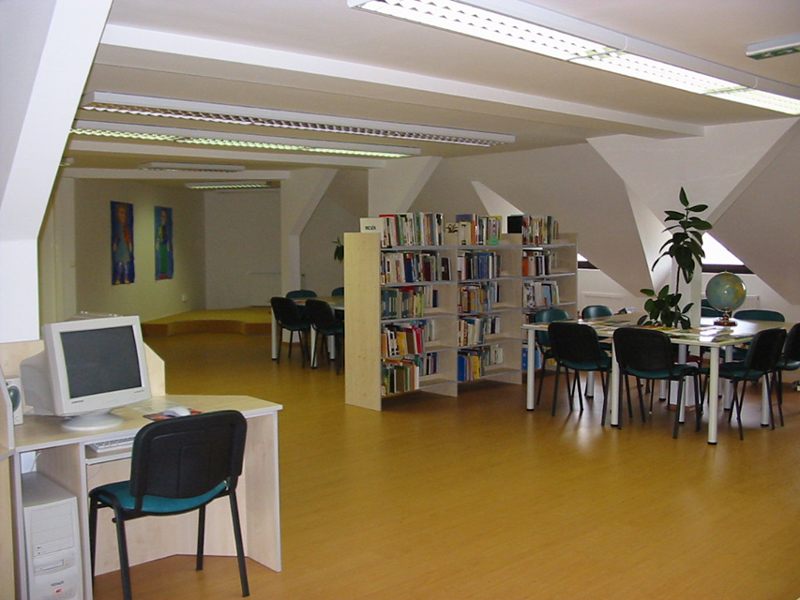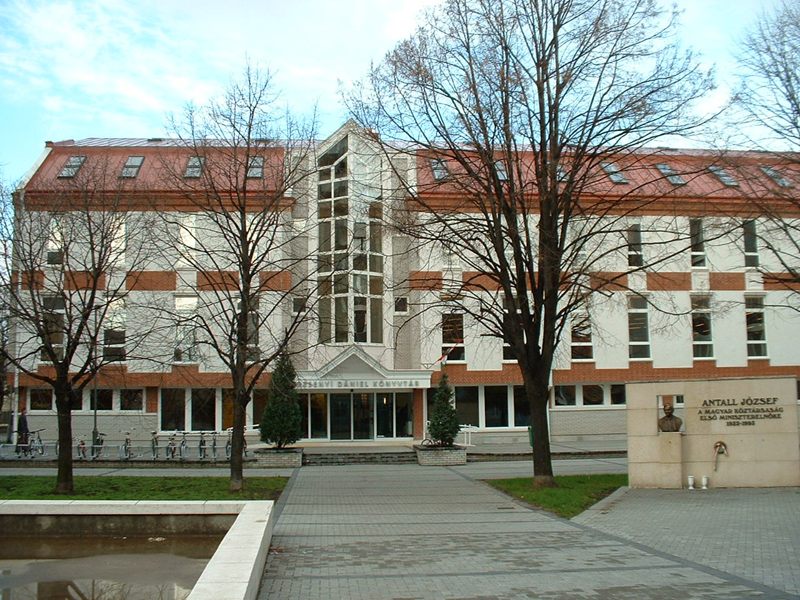2. The Hungarian library system today
A. Legislation relating to the library field
The first Hungarian law concerning the mission and services of libraries, museums and archives was passed in 1929, and during the socialist period several statutory orders further regulated the organisation and operation of the library network. By the early 1990s, however, it was clear that library legislation required a complete overhaul. Act CXL of 1997 (on Public Library Provision) set the legal framework for the new library system, incorporating the following concepts:
libraries are the core institutions of the information society
the library system is a prerequisite for the free flow of information
all citizens have the right to access services provided by the libraries which are „open to all users“ (see below)
the development of the library system and national library services must be financed by the state
The Act introduced the term “libraries open to all users“, encompassing various types of libraries whose services can be accessed and used by any citizen, and set out the criteria required for a library to be included in this category. These criteria emphasise a focus on services provided to users; libraries that are registered as “open to all users“ benefit from additional state funding for development (including collection development), ICT infrastructure and the continuing training of librarians. The Act also includes provisions for the national document delivery system and other central services and sets out the organisation and financing of the entire library system.
B. The role of the Ministry of Education and Culture
Responsibility for the strategic development and professional supervision of the Hungarian library system falls to the Minister for Education and Culture, through the work done by the Library Department. The main
activities of the Department are:
preparing legislation and regulations related to the library field
operation of the system of professional supervision
strategic planning
the administration of ministerial funding
The practice of professional supervision was re-introduced in 2002, with the aim of raising the standard of the services provided by libraries. The programme began with visits to nearly 2,000 village libraries and continued with a pilot project on quality-based supervision of municipal libraries. Future projects will be directed at academic libraries.
D. The strategic development of the library field
Since the implementation of the new Library Act, there have been three national library development strategies.
During the period 1997 - 2003, the following strategic objectives were accomplished:
the establishment of the National Document Delivery System
the establishment of the “open to all users“ accreditation system for libraries
the acceleration of the automation of libraries
the establishment of the Hungarian National Shared Catalogue
the reintroduction of the system of continuous training of librarians
the establishment of the Hungarian Library Institute
the modernisation of the organisational structure and services of the
National Library
The strategic document for the period 2003 - 2007
(http://www.ki.oszk.hu/strategia) includes the following four main objectives:
![]() Raising the quality of services in order to meet European Union standards
Raising the quality of services in order to meet European Union standards
Hungarian libraries should stay up to date and in line with the libraries of other member countries of the European Union, especially those countries that demonstrate ‘best practice’ in library and information services. Along with a focus on library users‘ needs and high-quality services, a range of new activities, technical solutions and performance measures are required, including quality management in libraries.
![]() Increasing access to library documents and information in line with the principles of democracy and equal opportunities
Increasing access to library documents and information in line with the principles of democracy and equal opportunities
Physical or virtual access to the wealth of information within libraries must extend to as many people as possible, irrespective of geographical location. As a consequence, the information infrastructure of the library network needs to be further developed, until it reaches the level of village libraries. Tasks include the coordinated digitisation of library collections; the retrospective cataloguing of the National Széchényi Library; and the incorporation of the catalogue records of the National Document Delivery System into the Hungarian National Shared Catalogue.
![]() Developing the library supply of rural areas
Developing the library supply of rural areas
All citizens must be able to access the documents and information that they need regardless of where they live: prior to the second national library development strategy, access was guaranteed only as far as the level of cities. Library services for village communities will be covered by county or city libraries, which provide documents and services requested by residents of rural communities.
![]() Making the image of librarianship more attractive
Making the image of librarianship more attractive
Library professionals must have the knowledge and skills required for international best practice in library and information services. At the same time, they must be able to deal with all groups of users, including people with disabilities and disadvantaged members of society. In order to meet these new requirements, the system of professional training must be restructured and reintroduced. An appropriate system for career development, including competitive salary packages, must be offered in order to attract qualified information professionals to work in libraries.
The areas of strategic development for the period 2007-2013 were determined in accordance with the objectives of the overall National Development Plan, which aims to increase the competitiveness and employability of citizens. The key areas of the third library strategy are:
![]() Improving the library and information infrastructure in villages
Improving the library and information infrastructure in villages
People living in villages must be able to access the same documents and information services as the citizens of towns. Access to these services needs to be provided through new or renovated library buildings or library service points, by mobile libraries and through extensive ICT development.
![]() Widening access to the wealth of information and knowledge
Widening access to the wealth of information and knowledge
This area includes the modernisation of the National Széchényi Library; the setting up of regional libraries as knowledge centres; enhancing cooperation between academic libraries, county libraries and business partners; and the infrastructure development of municipal libraries.
![]() Digitisation of library collections
Digitisation of library collections
The digitisation of library collections follows from the National Digitisation Plan for Libraries issued in 2006. Projects will include the creation of the National Digital Library in accordance with the European Digital Library initiative, and the provision of access to copyright-protected digital material through the extension of the dedicated networks of the National Digital Data Archive and the National Audiovisual Archive.
![]() Enhancing reading
Enhancing reading
This nation-wide reading project will support the development of children’s libraries and school libraries with the aim of enhancing the knowledge and creativity of young people. Developing the culture of reading will need stronger cooperation between libraries and the publishing industry.
E. Two important national library projects
![]() The National Document Delivery System
The National Document Delivery System
Országos Dokumentum-ellátási Rendszer – ODR
(http://www.ki.oszk.hu/odr)
The National Document Delivery System was established in 1998. The system ensures access to documents and information for all citizens from any library in the country. The system is based on 54 member libraries including the national library, the special libraries with a national remit, state-funded academic libraries, and county libraries. Together the collections of these libraries cover nearly all the documents held at Hungarian libraries. Library users can find the location of the documents in the catalogue and with the assistance of their librarian, can make a request via the system. The requested document is delivered to the library in printed or electronic form, or as a photocopy of the original document, in compliance with appropriate copyright rules. In the past few years, more than 500,000 documents have been delivered to users in villages and small settlements. The operational costs of the system are covered by the annual budget of the Ministry of Education and Culture. Member libraries receive funding for acquisitions, technical and technological tools, and postal fees for document delivery.
![]() The Service System for Rural Areas
The Service System for Rural Areas
(Könyvtárellátási Szolgáltató Rendszer – KSZR)
Following the implementation of the National Document Delivery System, a system was required to extend the service to villages and small settlements that do not have a library. The aims and mechanisms of this new system were set out in ‘The concept of library service provision for citizens living in villages and small settlements’, published in 2004. The Service System for Rural Areas is based on libraries providing services (county libraries and the more important city libraries), and on small communities ordering and receiving these services via various instruments such as village libraries, library service points and mobile libraries. The range of services includes document delivery, online information services, and the organisation of events and exhibitions. Special attention is paid to the services provided to children and young people. Funding for the system is provided through a variety of state development programmes (see below). For example, with the cooperation of the Ministry of Local Government and Regional Development, village communities were invited to „club together“ to apply for state funding for the introduction of a mobile library. Funding for this type of mobile library service reached 714 million HUF (2,580,000 EUR) in 2006, making it possible for 582 small villages to benefit from library services.
F. The financing of the library system
The operating costs of libraries are covered by the annual budget of their local library authorities. Operation and development of the Hungarian library system as a whole is coordinated centrally and financed by the state: this additional central funding is made available through development programmes rolled out according to the strategic objectives of library policy. Eligible institutions can submit project proposals in specific activity areas. Some of the programmes that libraries have benefited from are:
Matching funds for the collection development of public libraries.
In this programme, local government authorities provide a matching grant equivalent to the amount requested from the Ministry of Local Government and Regional Development.Grants for infrastructure development of the Service System for Rural Areas
The Ministry of Education and Culture runs a funding programme that provides long term loans at discounted rates for local governments that wish to improve the infrastructure of cultural services in their community. Funding for the Service System for Rural Areas can also be requested through this programme. Additionaly, proposals can be submitted for the renovation and improvement of the premises where library services will be provided. In 2005 and 2006, 123 library projects were supported by this programme.Grants for ICT development
Through the national ICT development programmes of recent years, broadband Internet connections have been established at all the libraries of the National Document Delivery System, all municipal libraries, church libraries in the „open to all users“ scheme, and college librariesQuality development at libraries and modernisation of services
This three-year quality development programme targeted the member libraries of the National Document Delivery System. In the framework of the programme, performance indicators and service guidelines relating to specific types of libraries were set out. The application of these quality management tools ensures that services are consistent in standard and quality at different libraries: 56 libraries participated in this programme.Grants for ensuring equal access to library services
Between 2004 and 2006, various calls for proposals supported projects that aimed to improve access to library buildings and library services by disabled users. Special funding was made available for the purchase of library software and tools for the blind and visually impaired: 128 libraries received funding within this programme.The National Cultural Funds grant scheme
The funding available through this programme is overseen by the Minister for Education and Culture. The programme has a library committee which makes annual recommendations for topics and activities to be supported through a bidding process for project funds. The topics are usually determined by strategic objectives of library policy, but other activities, like the purchase of technical equipment, quality assurance projects, professional publications, or the organisation of library campaigns and conferences, can also be supported from this budget.

Town Library, Jászberény, details of the facade







